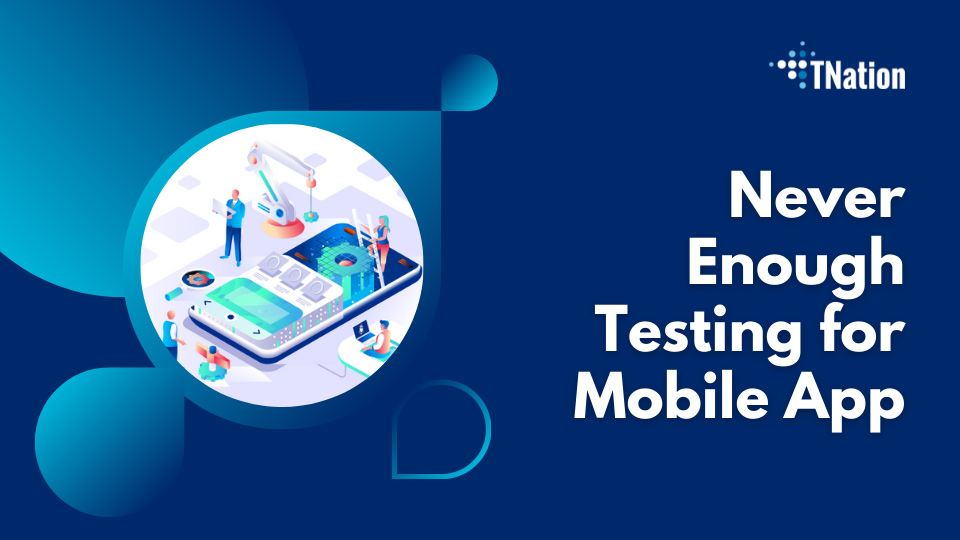Mobile apps allow businesses to communicate with consumers. As technology evolves, the users expect an experience that is custom-made for them. They trust the brands to understand their intent. For example, at the beginning of its existence, Google started with a blank page and a search box. Since then, the company has recognised the importance of a user-first experience.
These relevant and helpful experiences are immense opportunities for businesses. Because in the end, users think in value and results. These are vital tools that drive loyalty, which is why the company needs to make sure that they take every step of precaution before going live with a mobile app.
Steps to Successful Go-Live
Mobile consumers are getting increasingly tech-savvy. On average, a person spends around two hours a day exploring mobile apps for a seamless experience. In addition, their fascination with brands that cater to their needs sets many businesses’ successful apps apart from the competition.
The audience can be notoriously critical. First impressions and harsh app store reviews can negatively affect business and app growth. In other words, they are making sure that users will have a great experience using the app results in a positive app launch.
After months of building the app as the go-live moment approaches, it is always more stressful than the development process. The key to launching a successful mobile application is testing and planning.
Never Enough Testing for Mobile App
Testing is complex because of the sheer number of devices on the market. After numerous tests, the go-live version of the app should not have any obstacles. Many people download the app and test it again before the launch, even after meticulous testing. App testing platforms such as Apphance offer an easy way to test native applications across different devices.
Beta testing is equally important. It means that different users download and test the app in various environments. Therefore, beta testers and their feedback are critical before launching the app: the more testers, honest feedback, and issue-free application.
Watch the Traffic – Capacity Planning
Understanding limits and potential capacity is key to planning how much traffic an application can take. It is also one of the crucial factors in a successful app launch. Testing the backend structure for maximum users is done before launching the app to ensure that the user experience does not suffer.
Mobile App Store Submission Process
The application submission process depends on the app store. Approval and release are not just crucial while launching but for marketing purposes later on. The app store offers the owner to fill in information such as descriptions, screenshots, and keywords. In general, Google Play Store approves or rejects an app during the same day, while that process can take up to a couple of days with the Apple store.
Learn from Early Feedback
The first reviews on the app store are valuable information. Developers can learn from initial feedback. They can turn it into a robust early-warning system that easily monitors trends and ensures that the app meets user expectations for stability and performance. Knowing that 90% of users go through reviews and ratings before installing an app, considering users’ opinions can help a business improve and grow the app’s potential.
Just in Case – Rollback Plan
Many businesses omit the rollback plan because it suggests a failure. However, it exists if the first launch goes wrong, and developers can roll back the version, change it and reschedule it again. It allows tweaking the minor issues and then successfully releases the app.
Writing Down Go-live Checklist
Go-live checklist plays a crucial role in preparations leading to app launch. No one knows the app better than the developers and the owner. Hence, writing down a customized checklist for every necessary step is a one-time task. Moreover, the company uses the same list when launching updates of the app.
The success of the Mobile App Depends on User Experience.
Mobile apps keep users up to date on all favourite topics and brands. Users expect custom-made experiences and apps that will help them achieve their goals. These considerate encounters with the brand ensure loyalty and success. Businesses must work closely with the development team to ensure the product reaches the ready-for launch stage.
Successful mobile apps are capable of connecting individuals, building relationships, and establishing loyalty. Nowadays, people are seeking trustworthy help and relevant data. Therefore, introducing reliability and a user-centered approach to mobile app development will make the brand memorable.
Since 2008, TNation has provided mobile app development services for clients in more than eight countries worldwide. As an outsourcing company, our development teams have experience in a variety of industries.



